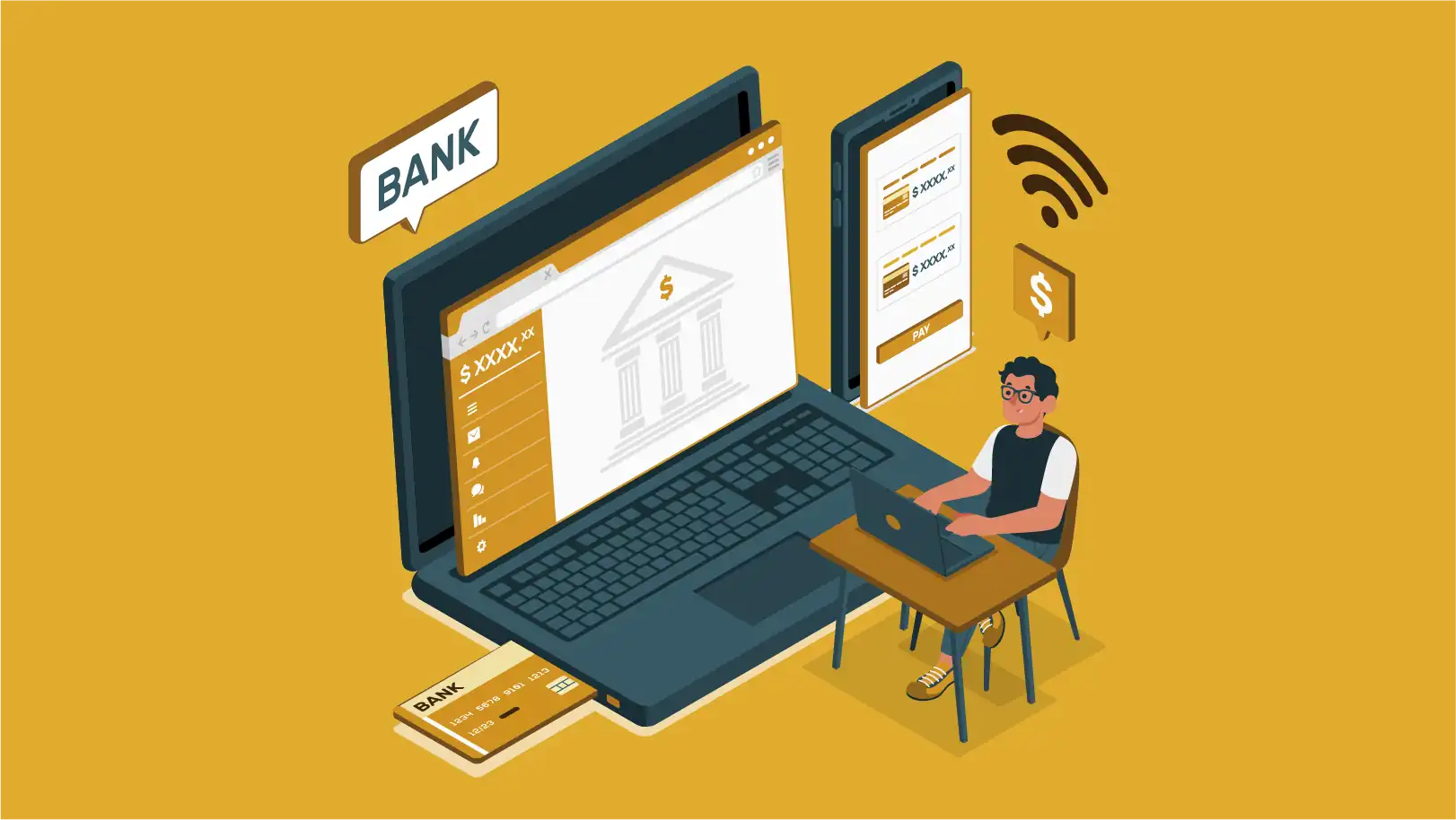
Decentralized Exchanges (DEXs) are changing the way people trade digital assets. Unlike traditional exchanges that are managed by a central authority, DEXs use blockchain technology to allow users to trade directly with each other. This blog will explain what DEX protocols are, why they’re important, and how creating and managing decentralized exchange platforms can make a difference.
What Are DEX Protocols?
DEX protocols are systems that facilitate the trading of cryptocurrencies directly between users without relying on a central authority or intermediary. These protocols run on blockchain technology, allowing transactions to occur in a decentralized manner. Unlike traditional exchanges, where trades are managed by a central organization, DEX protocols enable peer-to-peer trading by leveraging smart contracts to automate and secure the process. This means that users retain control over their funds and transactions are executed transparently and securely on the blockchain. By removing intermediaries, DEX protocols offer benefits such as enhanced privacy, reduced costs, and greater control over trades, making them a popular choice for decentralized finance (DeFi) applications.
Decentralized Exchange Protocols
Creating decentralized exchange (DEX) protocols involves building the technology required for users to trade cryptocurrencies directly, without relying on a central authority. This starts with designing and coding smart contracts—self-executing agreements that automate and secure the trading process by embedding the rules directly into the code. In addition to smart contracts, it involves building both the frontend and back end of the platform. The front end offers a user-friendly interface for trading, while the back end manages the platform’s operations, including data handling and transaction processing.
Decentralized exchanges go beyond just protocols. They encompass creating a fully functional trading platform that connects with blockchain networks such as Ethereum or Binance Smart Chain. This connection is crucial for supporting a variety of cryptocurrencies and tokens. Additionally, decentralized lending protocols play a significant role in the DeFi ecosystem, enabling users to lend and borrow assets without intermediaries. Effective liquidity handling is also a key component, ensuring that there is enough liquidity for smooth trading and fair pricing. Robust security measures, including thorough testing and audits, are implemented to protect users’ assets and data from potential threats. Overall, creating DEX protocols and platforms aims to provide a secure, efficient, and decentralized trading environment, offering users greater control and reduced costs compared to traditional exchanges.
DEX Protocols Activities
DEX protocols involve a range of specialized activities designed to build and deploy decentralized exchange platforms. These include:
Smart Contract Creation
Crafting and deploying smart contracts that handle the core functionalities of a DEX, such as trade execution, order matching, and asset transfers. These contracts are crucial for automating trades and ensuring secure transactions without intermediaries.
Platform Creation
Building both the front end and back end of the DEX. The front end involves designing an intuitive user interface that allows traders to view market data, execute trades, and manage their portfolios. The backend supports the platform’s operations, including data management, transaction processing, and connection with blockchain networks.
Blockchain Connection
Connecting the DEX with various blockchain networks, such as Ethereum, Binance Smart Chain, or others, to facilitate the trading of multiple cryptocurrencies and tokens. This ensures that the DEX can handle a diverse range of assets.
Liquidity Handling
Implementing mechanisms to attract and manage liquidity, which is vital for maintaining smooth trading operations and minimizing price slippage. This may involve creating and managing liquidity pools or incentivizing liquidity providers.
Security and Audits
Conducting thorough security audits and testing to identify and address potential vulnerabilities in the smart contracts and overall platform. Ensuring the DEX is secure from hacks and exploits is essential for protecting users’ funds and maintaining trust.
Custom Features
Providing tailored options to meet specific needs, whether it’s adding unique trading features, connecting with other DeFi applications, or customizing the user experience.
Maintenance and Support
Offering ongoing assistance and updates to ensure the DEX remains functional, secure, and up-to-date with the latest blockchain technologies and market trends. This includes troubleshooting issues, implementing upgrades, and responding to user feedback.
Classic Features Offered by DEX Liquidity Protocols
Classic features offered by DEX liquidity protocols make trading easier and more efficient. One of the main features is Automated Market Making (AMM), which lets users trade using liquidity pools instead of a traditional order book. AMMs use algorithms to set prices based on the amount of assets in the pool, allowing trades to happen smoothly. Liquidity pools are created when users put their assets into these pools, helping ensure there’s enough liquidity for trades to be completed without issues. Many DEX protocols also offer rewards through yield farming and staking, encouraging users to add their assets to liquidity pools in exchange for additional benefits. Some DEXs use a decentralized order book system, where orders are managed directly on the blockchain, making the process more transparent and less prone to manipulation.
Another key feature is permissionless access, meaning anyone can trade without needing approval from a central authority. Automated rebalancing helps keep the liquidity pools balanced by adjusting the asset amounts as needed. To manage price slippage, which happens when the trade price changes unexpectedly due to low liquidity, many protocols have features to minimize this problem. For creating or improving a trading platform, decentralized exchange software and tools are essential. These include coding smart contracts that automate trades, designing user-friendly interfaces, connecting to blockchain networks, and managing liquidity. Ensuring security and thorough testing are also important to make sure the trading platform is safe, efficient, and easy to use.
DEX Protocol Process
The DEX protocol process involves several critical steps to create a fully functional decentralized exchange platform. Here’s a simplified overview:
Requirement Analysis
The process begins with understanding the specific needs and goals of the DEX. This includes determining the types of assets to be traded, desired features, target user base, and connection requirements with existing blockchain networks.
Design and Architecture
Experts design the overall architecture of the DEX, including how the smart contracts will interact, the structure of the user interface, and the backend system. This phase involves creating detailed specifications for the platform’s functionality, security measures, and user experience.
Smart Contract Creation
Smart contracts are the backbone of a DEX. Experts write and test these contracts to automate trading functions, such as order matching, trade execution, and asset transfers. Smart contracts are deployed on the blockchain, enabling secure and decentralized transactions.
Frontend and Backend Creation
Frontend creation focuses on creating a user-friendly interface where traders can view market data, place orders, and manage their accounts. The backend handles the platform’s logic, data storage, and interactions with the blockchain, ensuring smooth operation and data integrity.
Integration with Blockchain Networks
The DEX is connected with blockchain networks like Ethereum or Binance Smart Chain to support various cryptocurrencies and tokens. This connection ensures that the platform can handle transactions across different assets and maintain connectivity with the blockchain.
Liquidity Handling
Implementing mechanisms to attract and manage liquidity is crucial. This may involve setting up liquidity pools, incentivizing liquidity providers, and ensuring that there is enough liquidity for smooth and efficient trading.
Security and Audits
Comprehensive security measures are implemented, including conducting thorough audits of the smart contracts and platform infrastructure. Security testing helps identify and address vulnerabilities to protect users’ assets and ensure the platform operates securely.
Why Choose Nadcab Labs for DEX Protocols
Choosing Nadcab Labs for DEX protocols ensures that you benefit from a team of experienced professionals dedicated to delivering high-quality, secure, and efficient decentralized trading platforms. Nadcab Labs specializes in creating customized DEX protocols tailored to your specific needs and goals. Their expertise covers everything from smart contract creation to frontend and backend work, ensuring a seamless and functional trading experience.
Nadcab Labs also prioritizes security through rigorous testing and audits, providing peace of mind that your DEX protocol will be secure and reliable. Their experience in connecting with various blockchain networks and handling liquidity ensures that your protocol will perform optimally and meet the demands of modern traders. By partnering with Nadcab Labs, you gain access to advanced blockchain technology and a commitment to excellence, helping you build a successful and innovative decentralized trading platform that stands out in the competitive blockchain space.






